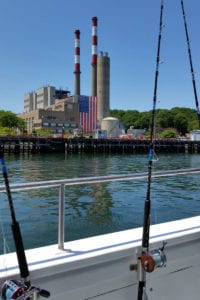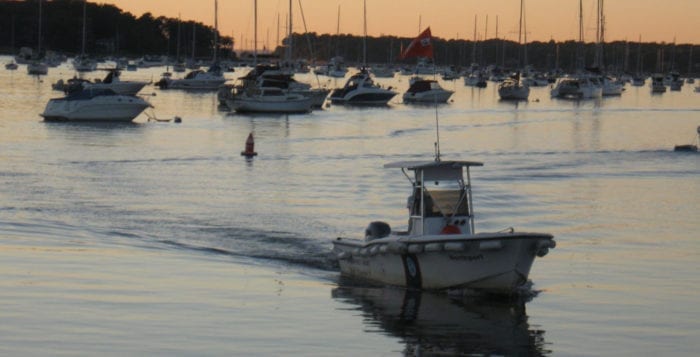Black sea bass is back on the table, as of June 27.
After public outcry for an earlier start to summer sea bass fishing, the New York State Department of Environmental Conservation announced this week the season will start 19 days earlier than the previous July start date.
The DEC has blamed federal regulations and management for the reasons behind originally closing the fishing season during June, despite plentiful numbers of bass.
“In spite of abundant populations, DEC is being forced to alter the commercial and recreational fishing seasons in order to meet federal quotas,” Acting Commissioner Basil Seggos said in a statement. “By allowing for an earlier June opening, we’re trying to strike the best possible arrangement for the recreational fishing community.”
U.S. Sen. Chuck Schumer (D-N.Y.) called for modifications to the summer fishing period last week at an event on the North Shore, speaking against what he called “inflexible” and “outdated” federal regulations for black sea bass fishing.

“After a slow start to the black sea bass season, mostly due to weather, our Long Island commercial fishers are ready to bounce back and access the plentiful supply of sea bass,” Schumer said at the event. “But instead they might fall flat if the feds and the state don’t throw them a line and let them do what they do best — fish.”
And Long Island fishermen said the July start date was hurting their livelihood.
“It’s a disaster for conservation and the economy,” said James Schneider, a boat captain in Huntington. “It’s crushed us.”
Schneider is catching other fish since the last black sea bass season ended on May 31, and said he has been forced to throw back the bass he inadvertently catches. Those die shortly after, he said, further contributing to a loss in potential profits.
Some fishers were also upset that Connecticut’s black sea bass season, which opened on May 1 and runs through Dec. 31, allowed fishermen to start earlier than in New York, as they share a body of water in the Long Island Sound.
Sean Mahar, the DEC director of communications, last week acknowledged fishing got off to a slow start in New York. Through May 21, only one-third of the May quota had been harvested, “with approximately 42,000 pounds [still] available on May 21,” Mahar said in an email. “However, the harvest rate increased dramatically the last week in May,” and the DEC had to receive more population data before deciding to open the summer fishing season earlier than July.
Although fishermen like Schneider can now get back to bass fishing earlier, the DEC has also increased the minimum size of the bottom feeders caught by 1 inch — making the new minimum length 15 inches — and reduced the daily possession limit from eight fish to three. However, that latter change will only affect the fishing season through August, so fishermen can have up to eight in September and October, and 10 in November and December.
According to the DEC, it also considered a July 8 opening with a five-fish limit, but anglers opted for the earlier start with a three-fish limit for a longer season.
Fishers can now catch black sea bass earlier this summer, but the minimum fish length has increased an inch and the number they can catch is limited for the first month.
The DEC also said the federal government’s population assessment of sea bass has caused scientists to “exercise extreme caution when determining harvest limits,” which has forced New York to reduce sea bass harvest despite an “abundance of fish.”
The Atlantic States Marine Fisheries Commission is one of three organizations that jointly manage black sea bass fishing, by determining the quota for sea bass each year. The quota this year was set at about 189,000 pounds.
Kirby Rootes-Murdy, that commission’s senior fishery management plan coordinator, said obtaining accurate population data on black sea bass poses a challenge because black sea bass are a hermaphroditic species, meaning they change sex from male to female.
“The reproductive life history characteristics … of black sea bass make it difficult to develop an accurate abundance estimate, ultimately limiting the ability to develop reliable catch limits,” he said in an email. “Assessment scientists are working hard to develop models to address these issues facing black sea bass management.”







